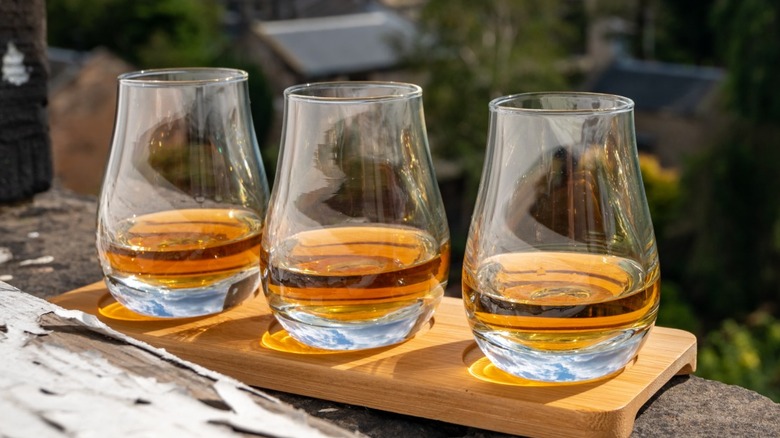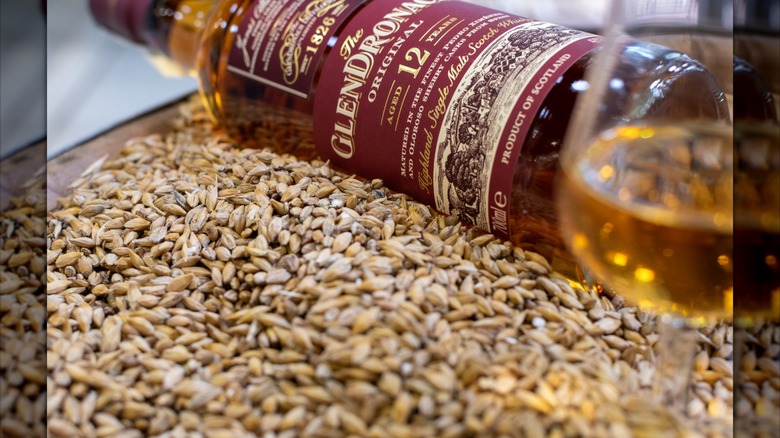What Makes Single-Malt Whiskey So Special?
Single malt whiskey carries something of an allure among both whiskey connoisseurs and novices alike. Even if you aren't a whiskey drinker yourself, you've likely heard the term before — and have probably heard it being spoken of in fairly high regard. Either way, it definitely stands as a whiskey term you really ought to know. Single malt Scotches pervade the whiskey scene, and while Scotland has certainly dominated the single malt industry over the years, it isn't the only region that produces them. Ireland and Japan both produce single malt whiskeys of their own, and recently the United States ratified the regulations for American-made single malt whiskey. With all this hubbub surrounding single malts, you might be left wondering what's so special about them to begin with.
Put simply, single malt whiskey is just another variety of whiskey. However, there are a few factors that come into play that make single malt whiskeys more sought after (and probably more expensive) than your standard grain spirit. Among these factors is the idea that each single malt whiskey — itself the unique product of its distillery — has its own individual characteristics that makes it distinct not only from other whiskeys, but even other single malts. With this in mind, you can think of every single malt as its own event, making each bottle special in its own right.
What leads to the uniqueness of single malts?
Every single malt whiskey can be seen as its own unique and distinguishable product, but how does it get to that point? Just like how bourbon is subject to many rules, there are guidelines that must be followed to make a single malt. As the name suggests, these whiskeys are made with one variety of malted wheat (most commonly malted barley in Scotch whisky). You might think this encompasses the "single" part too, but that word actually indicates that the whiskey has been produced in only one distillery, as opposed to blended whiskeys which can be a mixture of whiskeys from different distilleries.
Since these whiskeys are only made in the one distillery, that leaves the whiskey itself vulnerable to the aging process, where some whiskey is evaporated (also called the "angel's share") or trapped/soaked within the wood of the casks (the "devil's share"). Longer aging processes make single malts more complex, but it also means each cask yields less whiskey — both of these factors combining to make the whiskey ever more desirable. And so, due to its unique appeal and its limited supply, you can see how single malt whiskey has developed a reputation of being special.

